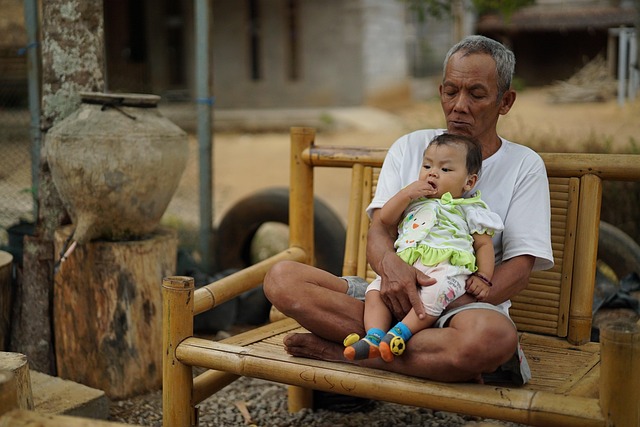Holistic family psychology recognizes the interconnectedness of mental, emotional, and physical health, treating each family member as a whole individual within their dynamic relationships. By combining mental health practices with physical well-being activities, this approach fosters deep changes, creating a harmonious environment where empathy strengthens bonds and resolves conflicts through understanding and open communication. Integrating tailored mind-body-spirit practices into daily life, guided by psychologists, enhances family cohesion by promoting healthy routines, supportive environments, and resilient relationships.
“Experience the transformative power of holistic family psychology—a nurturing approach that intertwines mental, emotional, and physical well-being. This comprehensive guide explores how empathy serves as a cornerstone in fostering resilient family bonds and effectively addressing conflicts. Discover practical strategies to integrate holistic care into daily routines, promoting harmony and balanced growth for every family member. Uncover the secrets to building a stronger, more connected family unit through this inclusive, empathetic lens.”
- Understanding Holistic Family Psychology: Uniting Mind and Body for Well-being
- The Role of Empathy in Building Strong Family Bonds and Resolving Conflicts
- Practical Approaches to Integrate Holistic Family Care into Everyday Life
Understanding Holistic Family Psychology: Uniting Mind and Body for Well-being
In the realm of family psychology, a holistic approach recognizes that human well-being is intricately linked to both mental and physical health. Traditional models often focus primarily on the mind, but holistic family psychology takes a unified perspective, understanding that emotional, psychological, and bodily aspects are interconnected. By addressing all these dimensions, this approach aims to foster deep and lasting changes within families.
This method involves treating each family member as a unique individual while also considering their interconnections and dynamics. It incorporates practices that nurture the mind, such as therapy sessions, alongside those that promote physical health, like mindfulness exercises or nutritional guidance. The goal is to create a harmonious environment where every family member can thrive, ensuring that both the whole and the sum of its parts are in equilibrium and balanced.
The Role of Empathy in Building Strong Family Bonds and Resolving Conflicts
Empathy plays a pivotal role in holistic family psychology, serving as a powerful tool for building strong bonds and resolving conflicts within families. When parents, caregivers, and children practice empathy, they cultivate an environment of understanding and connection. This means actively listening to one another, recognizing and validating emotions, and striving to see the world from each other’s perspectives. By fostering empathy, family members create a safe space where differences can be acknowledged without fear of judgment, encouraging open communication and strengthening relationships.
In conflict situations, empathy enables families to navigate challenges with compassion. Instead of reacting defensively or becoming emotionally charged, empathetic individuals aim to understand the underlying needs and concerns driving their loved ones’ behaviors. This perspective-taking facilitates more constructive problem-solving approaches, leading to mutually satisfactory outcomes. Through empathy, family psychology care becomes a supportive process that not only addresses individual issues but also nurtures the overall emotional well-being and cohesion of the family unit.
Practical Approaches to Integrate Holistic Family Care into Everyday Life
Integrating holistic family care into everyday life requires a practical, yet empathetic approach that respects each family’s unique dynamics and needs. Psychologists who specialize in family psychology can play a vital role in guiding families towards sustainable, healthy routines by incorporating mind-body-spirit practices tailored to their specific circumstances. This might involve encouraging regular family meals as a time for connection and mindfulness, fostering open communication through non-violent communication techniques, or suggesting simple nature walks to cultivate present-moment awareness and reduce stress.
Practical applications extend beyond individual behaviors, emphasizing the importance of creating supportive environments. This includes designing living spaces that nurture rest and relaxation, establishing consistent bedtimes for all family members, and incorporating creative outlets like art or music that allow for emotional expression. By weaving these holistic practices into daily life, families can experience improved communication, enhanced well-being, and a deeper sense of connection, laying the foundation for resilient relationships within the family unit.
Holistic family psychology offers a transformative approach to care, emphasizing the interconnectedness of mind and body within the familial unit. By fostering empathy, families can build stronger bonds, effectively resolve conflicts, and cultivate an environment of overall well-being. Integrating holistic practices into everyday life enables a more balanced and harmonious family dynamic, where each member feels valued and understood. Adopting this approach can lead to profound positive changes in family relationships and mental health outcomes.
